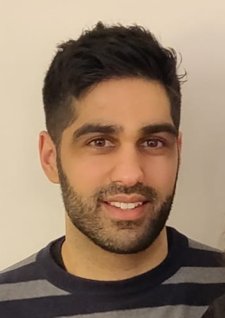
Gastonderzoeker DR. P.K. (Prejaas) Tewarie
EXTERN: Medisch Spectrum Twente/Amsterdam UMC
E-mail: prejaas.tewarie @mst.nl
General information
My name is Prejaas Tewarie and I am born in Amsterdam (1985). I have studied both medicine (MD) and physics (MSc) at the VU University in Amsterdam. The reason to undertake these dual studies in medicine and physics was out of pure interest in these apparently very distinct fields. A paper in the Dutch journal of physics by prof.dr.ir. Michel van Putten and prof.dr. Stan Gielen on computational neuroscience and the electroencephalogram (2008) inspired me and introduced me to a field where knowledge of physics could be used in the context of medicine. My interests in neurology and especially clinical neurophysiology have been very strong ever since. After obtaining my medical degree, I worked as a PhD student in the field of functional brain networks in multiple sclerosis at the VU University Medical Center, under supervision of prof.dr. Kees Stam, prof.dr. Chris Polman, dr. Arjan Hillebrand and prof.dr. Frederik Barkhof. While doing this, I also worked in parallel on the methodology of brain networks. After my PhD research, a postdoc position followed at the school of physics at the University of Nottingham (United Kingdom), under supervision of prof. Matthew Brookes and prof. Stephen Coombes. The postdoc was focused on novel methods to estimate functional brain networks in various ways, i.e. time-varying functional brain networks, multilayer brain networks, relationship between functional networks obtained from fMRI and magnetoencephalography. In addition, I worked on elucidating the underlying mechanisms of time-varying functional networks using computational neuroscience. I started my specialty training in neurology in 2017 at the Amsterdam UMC (VU University Medical Center), under supervision of prof.dr. Henk Berendse. During my clinical training my research interests shifted towards traumatic brain injury. My current work at our department at the University of Twente focuses on the predictive and prognostic value of early EEG in patients who suffered from severe traumatic brain injury.
